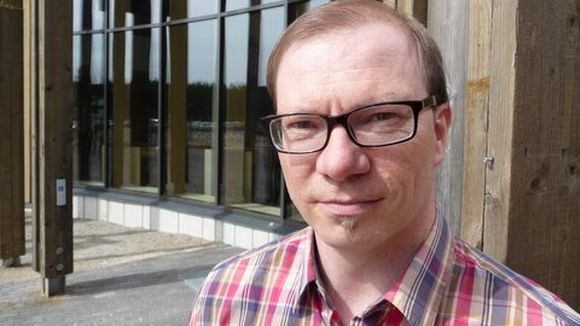Sámi petition gains ground in Finland

(Jouni Aikio / Yle Sápmi)
Sámi associations sent a petition to Finnish MPs and ministers where they asked Finland’s politicians and officials to take the Sámi Parliament’s programme goals into consideration in preparing the new government programme.
One chairman says that the petition, intended to spread information and open lines of dialogue, has been met positively.
Six Sámi NGOs signed and sent in a petition in June via the City-Sámit organisation, asking Finland’s politicians and officials to heed the Sámi people’s goals in preparing the new government programme. That petition is now receiving positive responses among MPs and ministers.
Sámi bills failed
City-Sámit chair Pentti Pieski told Yle Sápmi that the idea for the petition was born in March, when several Sámi bills failed to pass Parliament.
“That’s when we got the idea, but we’ve had a feeling for a very long time that the circumstances of Sámi people living in Finnish cities will not improve unless we start working more actively for that change,” Pieski said.
Pieski said that his organisation’s petition is intended to provide information on the rights and realities of Sámi people and to establish a dialogue with Parliament. Responses to the petition, a month later, have been positive.
“Right after we left our petition we received many messages from MPs in different parties inviting us to Parliament,” Pieski said. “Later others have joined in and said that they support our actions. Still others have told us they are not fully aware of Sámi issues, and have asked us to discuss them together.”
City-Sámi rights in homeland unequal
Pieski says that cities that house lots of Sámi people should provide the same rights and services as traditional Sámi areas in northern Finland and the Arctic.
“I believe that Sámi people should have the same rights no matter where they live,” he says. “These days Sámi people leave their homes behind to come work or study in the south. We would be content with a moderate improvement in the execution of our rights.”
Rights not enforced
The Finnish constitution states that Sámi people have the right to exercise their cultural heritage and to relay that heritage to their offspring. That right, however, is not enforced everywhere – specifically in large southern cities where Sámi people live.
“When Southern Finnish Sámi come to their traditional homeland in the north, their rights are practically on a par with the tourists there,” Pieski says. “Fishing and rights of way in forests are among the things that are not vouchsafed.”
The ILO 169 agreement from 1989 safeguarding indigenous rights has still not been ratified by Finland. Protests against the government treading water on the issue were last held in March.
Related stories from around the North:
Canada: Time for action – Canada’s Truth and Reconciliation Commission releases recommendations, Eye on the Arctic
Finland: Finland’s Sámi request UN help in securing their rights, Yle News
Greenland: What the EU seal ban has meant for Inuit communities in the Arctic, Eye on the Arctic
Iceland: Iceland conference draws on hopes, concerns for changing Arctic, Alaska Dispatch
Norway: Alarming situation for indigenous peoples in Russia, Barents Observer
Russia: Russia to give indigenous peoples priority in Barents chairmanship, Barents Observer
Sweden: UN report critical of Sweden’s treatment of the Sami, Radio Sweden
United States: Alaska village seeks disaster relief as walrus harvests decline drastically, Alaska Dispatch News



